Table of Contents
ToggleWhat is Scalp Acne?
Scalp acne is similar to facial acne and occurs when hair follicles on the scalp become clogged with oil, dead skin cells, and bacteria. These clogged follicles can result in pimples, cysts, or even painful lumps.
The condition can be aggravated by various factors, including hormonal imbalances, stress, and the use of certain hair products.
Scalp acne can be an irritating and embarrassing problem, impacting not only the health of your scalp but also your overall confidence. Fortunately, with the right knowledge and approach, you can banish scalp acne for good.
This comprehensive guide, with insights from dermatologists, will walk you through effective treatments, preventive measures, and tips to maintain a healthy scalp. Let’s dive in!
What Causes Scalp Acne?
Scalp acne occurs when hair follicles become clogged with oil, dead skin cells, and bacteria. Factors like hormonal changes, stress, and certain hair products can contribute to this condition.
Grasping the reasons behind these issues is the initial move towards proper treatment and prevention. Dealing with scalp acne can be frustrating and challenging. This guide provides expert tips to help you achieve a clear and healthy scalp.
With these ten actionable steps, you can say goodbye to scalp acne and enjoy the confidence of healthy hair.
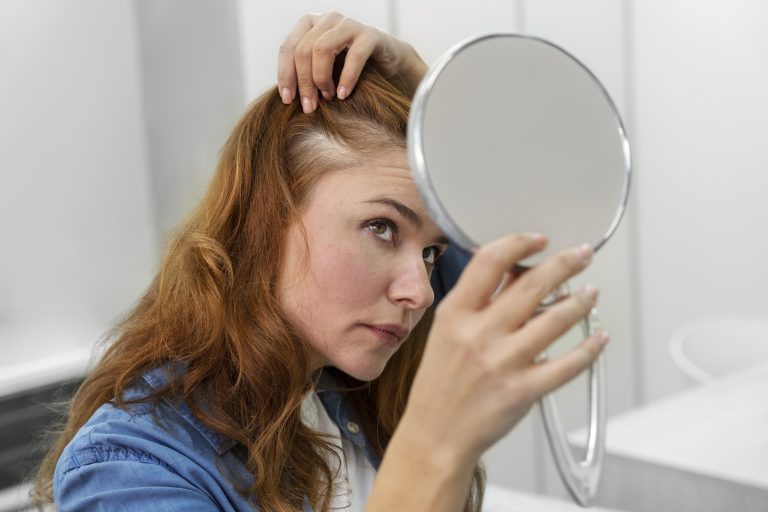
What Importance of a Clean Scalp?
Regularly cleaning your scalp removes excess oil, dirt, and product buildup. This practice helps prevent clogged pores, reduces the risk of infections, and promotes healthier hair growth. A clean scalp is essential for overall hair health and can significantly reduce the occurrence of acne.
Expert 10 Tips For Scalp Acne
1. Choose the Right Shampoo
Selecting a shampoo designed for scalp health is crucial. Look for shampoos containing ingredients like salicylic acid or tea tree oil, which can help unclog pores and reduce inflammation. Avoid shampoos with harsh chemicals that can irritate your scalp and exacerbate acne.
2: Avoid Over washing
While keeping your scalp clean is important, overwashing can strip your scalp of natural oils, leading to dryness and increased oil production. Aim to wash your hair two to three times a week, adjusting based on your scalp’s needs.
3: Exfoliate Your Scalp
Exfoliating your scalp once a week helps remove dead skin cells and product buildup. Use a gentle scalp scrub or a brush designed for scalp exfoliation. This process can improve circulation and promote a healthier scalp environment
4: Maintain a Healthy Diet
A balanced diet rich in vitamins and minerals supports overall scalp health. Foods high in omega-3 fatty acids, zinc, and vitamins A, E, and C can help reduce inflammation and support healthy hair growth. Make sure to include a variety of fruits, vegetables, and lean proteins in your daily diet.
5: Stay Hydrated
Hydration is key to maintaining a healthy scalp. Stay hydrated by drinking plenty of water throughout the day to keep your scalp and hair healthy. Proper hydration helps balance oil production and flush out toxins that could contribute to acne.
6: Use Non-Comedogenic Hair Products
Choose hair products labeled as non-comedogenic, meaning they won’t clog pores. Avoid heavy oils and silicones that can lead to buildup and acne. Opt for lightweight, breathable formulas that support scalp health.
7: Avoid Tight Hairstyles
Tight hairstyles can pull on the scalp and hair follicles, causing irritation and inflammation. Opt for looser styles that reduce tension on your scalp. Giving your hair a break from tight styles can help prevent scalp acne.
8: Manage Stress
Stress can trigger hormonal changes that exacerbate scalp acne. Participate in stress-reducing activities like yoga, meditation, or regular exercise. Managing stress effectively can help maintain a healthy balance of oils on your scalp.
9: Protect Your Scalp from the Sun
Stress can trigger hormonal changes that exacerbate scalp acne. Participate in stress-reducing activities like yoga, meditation, or regular exercise. Managing stress effectively can help maintain a healthy balance of oils on your scalp.
10: Consult a Dermatologist
If scalp acne persists despite your best efforts, it may be time to consult a dermatologist. A professional can provide personalized advice and treatments, such as topical or oral medications, to effectively address your scalp acne.
Achieving a clear and healthy scalp is possible with the right care and attention. By following these expert tips, you can manage and prevent scalp acne, leading to healthier hair and increased confidence.
Remember, consistency is key, and a little effort goes a long way in maintaining scalp health.
How to Treat and Prevent scalp Acne?
Scalp acne is a common yet frustrating condition that can affect anyone, regardless of age or hair type. It not only impacts the health of your scalp but also your overall hair health and confidence.
In this comprehensive guide, we’ll unlock the secrets to a flawless scalp by exploring how to treat and prevent acne effectively. With the right knowledge and practices, you can achieve a clear and healthy scalp, free from the discomfort and embarrassment of acne.
This comprehensive guide, with insights from dermatologists, will walk you through effective treatments, preventive measures, and tips to maintain a healthy scalp. Let’s dive in!
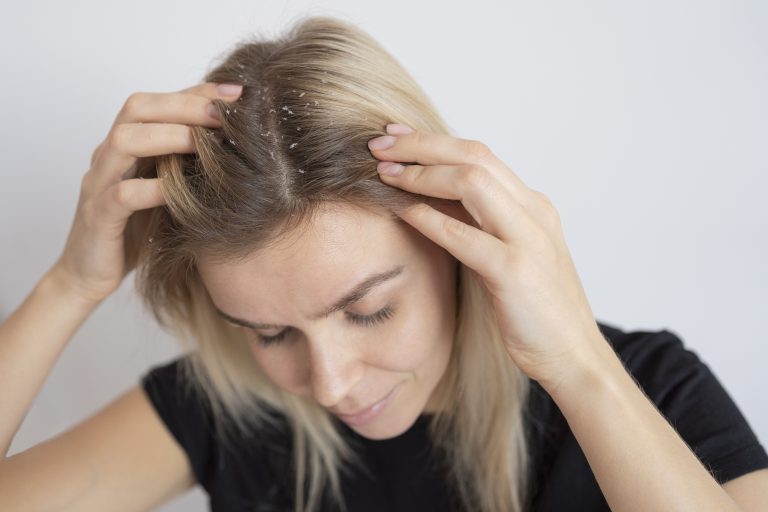
What Causes of Scalp Acne?
Understanding the root causes of scalp acne is crucial for effective treatment and prevention.
- Excess Oil Production: Sebaceous glands on the scalp produce oil to keep the skin and hair moisturized. However, overproduction can clog pores.
- Poor Hygiene: Irregular washing can lead to a buildup of oil, dead skin cells, and product residue.
- Hormonal Changes: Fluctuations in hormones, particularly during puberty, menstruation, or pregnancy, can trigger acne.
- Stress: High stress levels can increase oil production and exacerbate acne.
- Hair Products: Certain shampoos, conditioners, and styling products can clog pores if they contain heavy oils or harsh chemicals.
What Benefits of Regular Scalp Cleaning?
Maintaining a clean scalp is the first step toward preventing and treating scalp acne. Regular cleaning helps to:
- Remove Excess Oil and Dirt: Washing your scalp regularly removes the buildup of oil, dirt, and dead skin cells.
- Prevent Infections: A clean scalp reduces the risk of bacterial and fungal infections that can cause or worsen acne.
- Promote Healthy Hair Growth: A healthy scalp environment supports stronger, shinier hair.
How to Choose the Right Shampoo?
Ingredients to Look For
Selecting the right shampoo is vital for managing scalp acne. Look for shampoos containing:
- Salicylic Acid: Helps to exfoliate the scalp and unclog pores.
- Tea tree oil :possesses antibacterial and anti-inflammatory properties.
- Zinc Pyrithione: Reduces dandruff and bacterial growth.
What Ingredients to Avoid?
Avoid shampoos with harsh chemicals that can irritate the scalp, such as:
Sulfates: These can strip the scalp of natural oils, leading to dryness and irritation.
Parabens: These preservatives can disrupt hormonal balance.
Heavy Oils: Can clog pores and exacerbate acne.
Why Over washing is Harmful?
While keeping your scalp clean is important, overwashing can be counterproductive. Overwashing:
Strips Natural Oils: This can lead to dryness and cause the scalp to overproduce oil as a compensatory mechanism.
Causes Irritation: Frequent washing can irritate the scalp and exacerbate acne.
Finding the Right Balance
Strive to wash your hair two to three times per week. Adjust based on your scalp’s oiliness and the products you use.
What Benefits of Scalp Exfoliation?
Exfoliating your scalp can significantly improve its health by:
- Getting rid of dead skin cells is crucial for preventing clogged pores.
- Promoting Blood Circulation: Improved circulation encourages healthy hair growth.
- Reducing Product Build-Up: Helps to keep the scalp clean and healthy.
How to Exfoliate Your Scalp?
Use a gentle scalp scrub or a brush designed for scalp exfoliation once a week. Massage in circular motions to promote blood flow and remove debris.
What Foods for a Healthy Scalp?
Your diet significantly impacts the health of your scalp and hair. Incorporate foods rich in:
- Omega-3 Fatty Acids: Found in fish, flaxseeds, and walnuts, these reduce inflammation.
- Vitamins A, C, and E: These vitamins are essential for healthy skin and hair.
- Zinc: Promotes cell growth and repair, found in meat, beans, and nuts.
What Foods to Avoid?
- Sugary Foods: High sugar levels can increase oil production.
- Dairy Products: Some studies suggest a link between dairy and acne.

How To Stay Hydrated?
Drinking plenty of water is crucial for maintaining a healthy scalp. Hydration helps to:
- Balance Oil Production: Keeps your scalp from becoming too oily or too dry.
- Flush Out Toxins: Helps to remove impurities that can clog pores.
Tips for Staying Hydrated
Make it a goal to drink at least eight glasses of water a day. Include water-rich foods like cucumbers, oranges, and watermelon in your diet.
Benefits of Non-Comedogenic Products
Non-comedogenic products are formulated to not clog pores.
These are beneficial for:
- Reducing Acne: Prevents the buildup of pore-clogging residues.
- Maintaining Scalp Health: Keeps your scalp breathable and free from irritants.
What to Look For
Check labels for non-comedogenic certifications. Avoid heavy oils and silicones, opting for lighter formulations.
Avoid Tight Hairstyles
Wearing tight hairstyles frequently can:
- Cause Irritation: Pulls on hair follicles, leading to inflammation.
- Increase Risk of Acne: Traps sweat and oil, which can clog pores.
Healthier Hairstyle Alternatives
Opt for looser hairstyles. Give your scalp regular breaks from tight styles to reduce the risk of acne and other scalp issues.
Manage Stress
Connection Between Stress and Scalp Acne
High stress levels can trigger hormonal changes that increase oil production, leading to acne. Managing stress effectively can help maintain a healthy scalp.
Stress-Reduction Techniques
Add stress-reducing activities to your routine, like:
- Yoga and Meditation: Helps to calm the mind and reduce stress.
- Regular Exercise: Promotes overall well-being and reduces stress hormones.
- Adequate Sleep: Ensures your body can repair and maintain itself effectively.

Protect Your Scalp from the Sun
Exposure to UV rays can damage your scalp and worsen acne. Protecting your scalp from the sun is essential for maintaining its health.
Sun Protection Tips
Wear a Hat: Provides physical protection from UV rays.
- Use UV-Protectant Sprays: Formulated for hair and scalp protection.
- Avoid Prolonged Exposure: Stay in the shade whenever possible.
Consult a Dermatologist
When to Seek Professional Help?
If your scalp acne persists despite following these tips, it may be time to consult a dermatologist. They can:
- Offer personalized treatment: customized to your individual needs.
- Recommend Medications: Topical or oral treatments that can effectively address scalp acne.
- Offer Advanced Therapies: Such as laser treatments or chemical peels.
Preparing for Your Appointment
Keep a log of your symptoms and treatments tried. This information can help your dermatologist provide the most effective treatment plan.
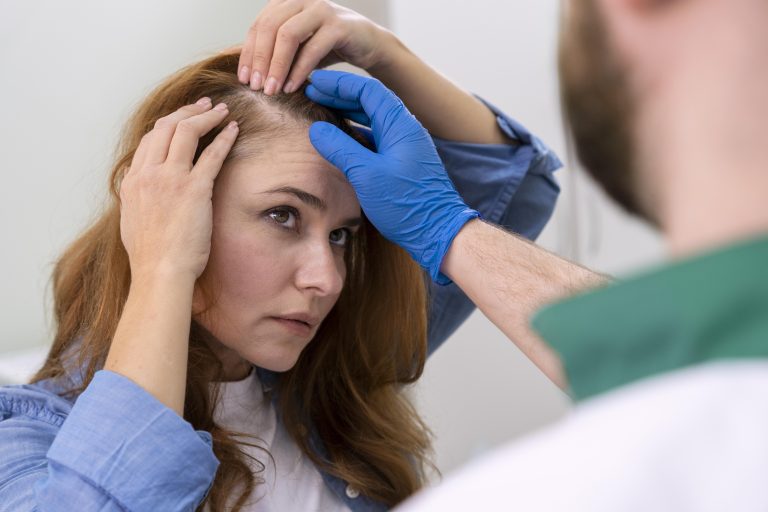
Most Effective Treatments for Scalp Acne
1. Topical Treatments
Salicylic Acid: A beta-hydroxy acid that exfoliates the skin and helps unclog pores.
- Benzoyl Peroxide: Eliminates acne-causing bacteria and decreases inflammation.
- Topical Retinoids: Derived from vitamin A, retinoids help prevent hair follicles from becoming plugged.
2. Oral Medications
- Antibiotics: Prescribed to reduce inflammation and control bacterial overgrowth.
- Hormonal Therapy: Used to regulate hormone levels and reduce oil production in cases of hormonal acne.
3. Lifestyle Changes
- Regular Washing: Keeping the scalp clean can prevent the buildup of oil, dead skin cells, and bacteria.
- Avoiding Irritating Products: Choose hair care products labeled as non-comedogenic and free of harsh chemicals.
- Stress Management: Stress can exacerbate acne, so practicing relaxation techniques such as meditation or yoga may help.
Choose the Right Hair Care Products
Opt for products labeled as non-comedogenic, meaning they won’t clog pores. Look for formulations that are free of sulfates, parabens, and heavy oils.
Maintain Good Hygiene Practices
Wash your hair regularly to remove excess oil, dirt, and product residue. Use a mild shampoo and conditioner that suits your scalp type.
Avoid Over washing or Over-Scrubbing
While cleanliness is important, excessive washing or scrubbing can strip the scalp of its natural oils, leading to irritation and potentially worsening acne
Homemade Remedies for Scalp Acne
Now that we’ve identified the common causes, let’s explore some effective homemade remedies to combat scalp acne naturally:
1. Tea Tree Oil Treatment:
Tea tree oil is known for its antibacterial and anti-inflammatory properties, making it an excellent remedy for scalp acne. Combine a few drops of tea tree oil with a carrier oil such as coconut oil, then massage the mixture into your scalp. Leave it on for 30 minutes before rinsing it off completely.
2. Apple Cider Vinegar Rinse:
Apple cider vinegar helps balance the pH level of the scalp and has antimicrobial properties that can help reduce acne-causing bacteria .Mix apple cider vinegar with water, then after shampooing use it as a final rinse for your hair.
3. Aloe Vera Gel:
Aloe vera is renowned for its soothing and healing properties. Massage fresh aloe vera gel into your scalp and let it sit for 20-30 minutes before washing it off with lukewarm water.
4. Witch Hazel Toner:
Witch hazel acts as a natural astringent, helping to reduce oiliness and inflammation on the scalp. Apply witch hazel to the scalp using a cotton ball or pad after washing your hair.
RELATED: Which acne treatments for you?
Additional Tips for Preventing Scalp Acne
In addition to using homemade remedies, here are some preventive measures to keep scalp acne at bay:
- Maintain Good Hygiene: Wash your hair regularly with a gentle, sulfate-free shampoo to prevent oil and dirt buildup.
- Avoid Overwashing: While cleanliness is essential, overwashing can strip the scalp of its natural oils, leading to increased oil production and acne.
- Choose Hair Products Wisely: Opt for non-comedogenic hair products that won’t clog pores or contribute to acne breakouts.
- Keep Hair Off Your Face: Avoid hairstyles that allow hair to come into contact with your face, as this can transfer oil and bacteria to the skin.
Conclusion
Achieving a flawless scalp free from acne requires a comprehensive approach that includes proper hygiene, the right products, a healthy diet, and effective stress management.
By following these expert tips and maintaining a consistent scalp care routine, you can significantly reduce the occurrence of scalp acne and promote overall hair health. Remember, patience and consistency are key.
With dedication, you can enjoy a clear, healthy scalp and the confidence that comes with it.
Achieving a clear and healthy scalp is possible with the right care and attention. By following these expert tips, you can manage and prevent scalp acne, leading to healthier hair and increased confidence.
Remember, consistency is key, and a little effort goes a long way in maintaining scalp health.
Read More About Scalp Acne

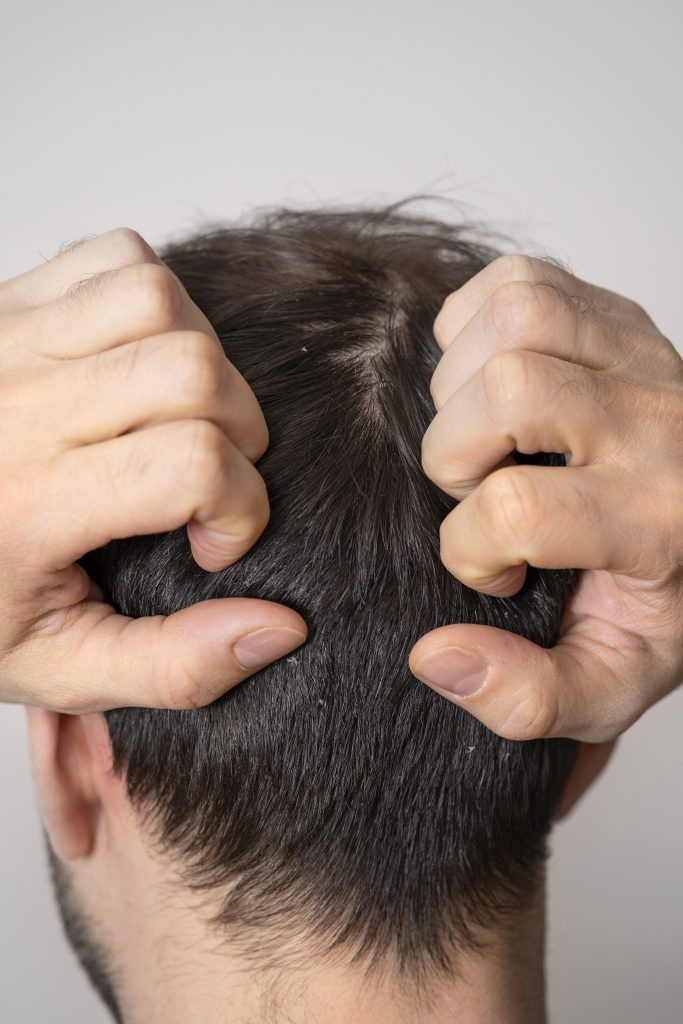
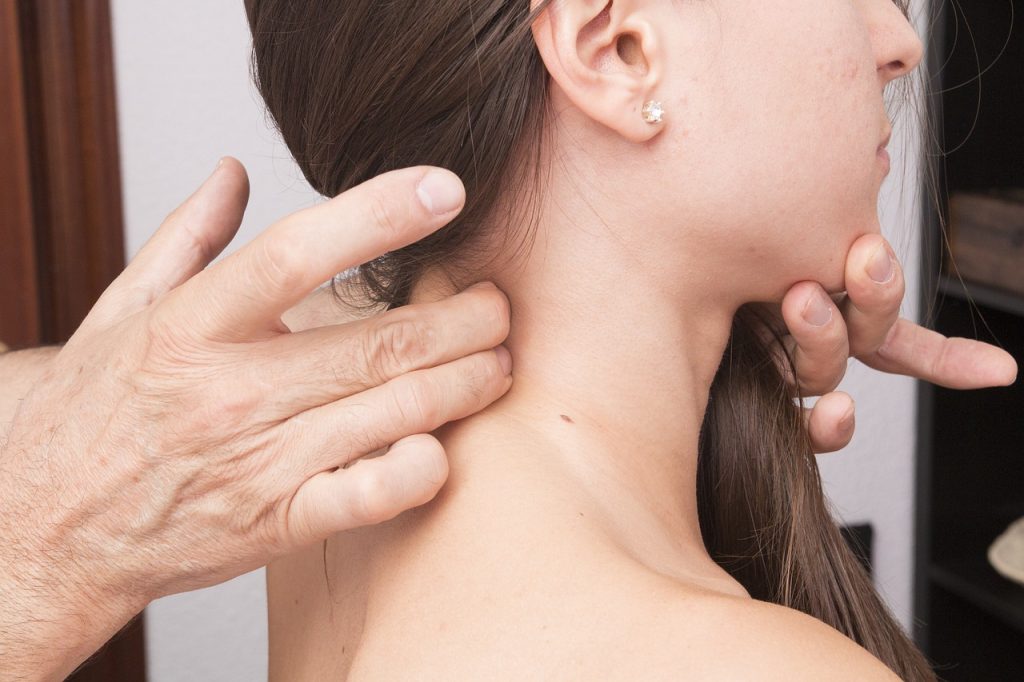
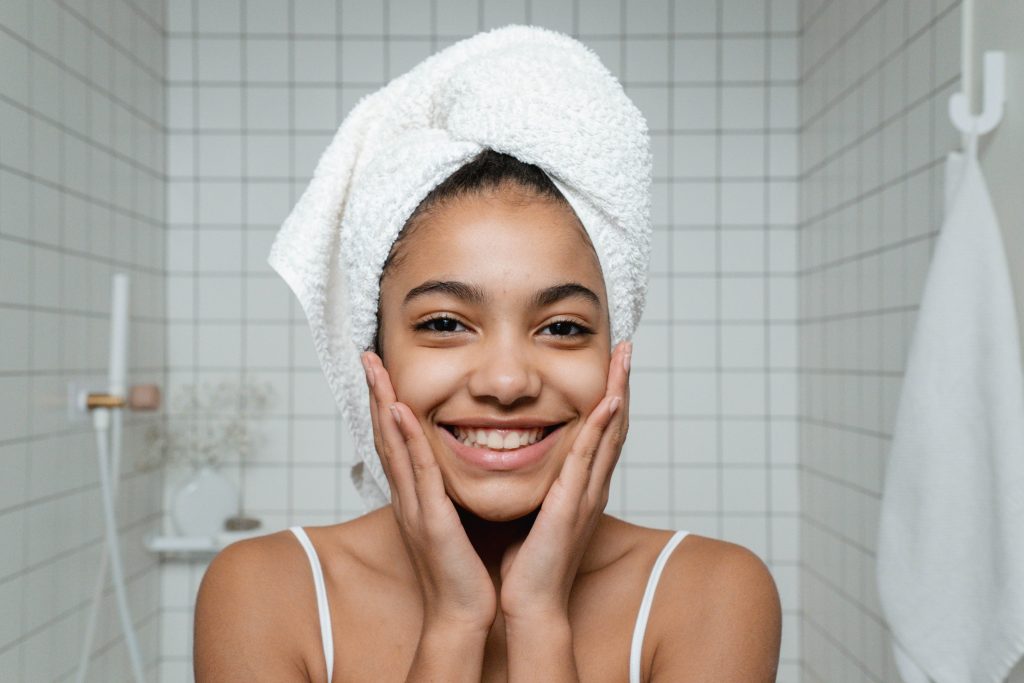
Great job on this article! Very clear and informative.
Thanks